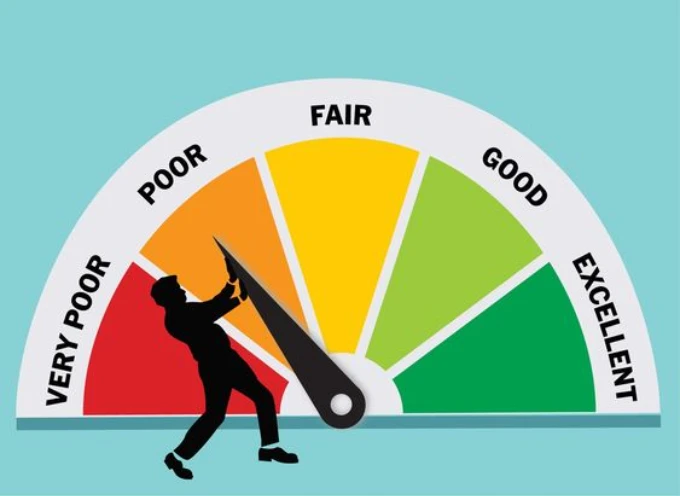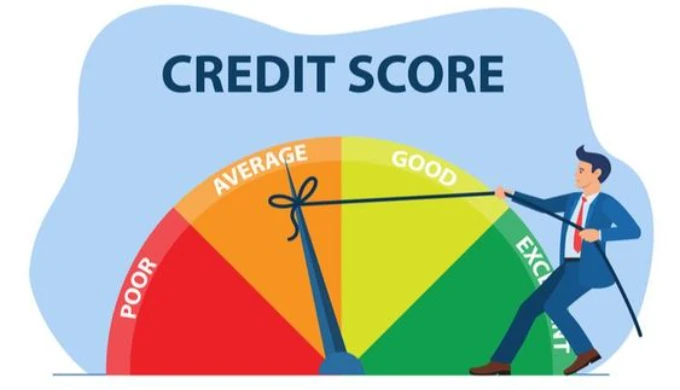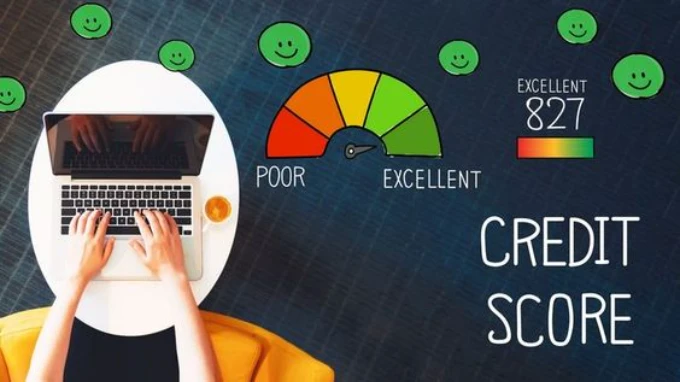Credit Score Improvement: The labyrinth of personal finance is equitably as challenging as it is essential to navigate. However, there is the proverbial golden thread that runs through many of the financial endeavors-an unassailable credit score.
Whether you are an ardent fanatic of financial literacy coupled with a deep-seated interest in securing your economic future, a young adult sent from the proverbial masthead to oversee the helm of your personal finances or a potential homebuyer ready to take the plunge and invest in your dream property, credit score enhancement can act as the fulcrum on which the financial pendulum swings.
This treatise seeks to unravel the captious elements of credit score enhancement by presenting a roadmap filled with invaluable and tactical tips, advanced approaches, and long-term care practices to help shore up your financial well-being.

Understanding Your Credit Score
Financial institutions decide your creditworthiness based on your credit score, a number between 300 and 850. A strong credit score signifies to the financial institutions that you are a less risky borrower, which leads to more favorable conditions on loans and credit lines. If it’s not as high as you’d like, the initial step toward improving it is to acquire information of the essential components.
What is a Credit Score?
A credit score is an estimate of your credit risk at a given point in time derived from your credit report information. Your credit report documents your borrowing history and how you handle your credit as a whole. It is critical to know your score to assess how creditors view you in terms of borrowing money.
Factors That Affect Your Credit Score
The five most essential factors include the following:
- Payment History: Your track record of making on-time payments.
- Credit Utilization: The percentage of your credit limit that you are using. It is a fraction of your credit limit compared to the money borrowed.
- Credit History Length: How long your accounts have been active. This factor depends on how long your accounts are open .
- New Credit: The number how many new accounts you’ve opened in the past on recent inquiries.
- Credit Mix: The various types of credit accounts you have. It stands behind the variety of credit types. Each factor has a different impact on the entire credit rating. To get started, choose one or two factors where you need to make significant change

Each of these components carries a certain weight in calculating your overall score. Focus on the areas where you can make the most substantial and immediate impact.
Practical Steps to Improve Your Credit Score
Paying Bills on Time
First of all, your payment history is the single most important factor anywhere from 35% to 40% of your score. Remember to pay all of your bills on time and set up reminders or auto-pays to ensure that you never miss any due date. Even a single late payment can ding your score significantly. The key concept here is consistency.
Keeping Credit Card Balances Low
credit utilization also makes a big impact on your credit score. The general rule is to keep your credit card balance to credit line ratio under 30%, although the lower, the better. This may require to pay down balances more than once a month, not just based on your monthly statemen
Regularly Checking Your Credit Report
Regularly checking your credit report, in general, helps ensure your score remains healthy. One way to destroy your credit score is a mistake on your credit report. Additionally, every American is entitled to one free report every year from all three major credit bureaus, so you should check a report free of charge. Several resources offer free credit monitoring, so there is no reason not to stay in charge of your finances.
Advanced Strategies for Credit Score Improvement
Debt Consolidation
High-interest debt, especially on credit cards, can be a drag on your credit score. Reorganizing this debt into a lower-interest loan or onto a balance transfer credit card can help you pay it off faster, which will also reduce your credit utilization rate. If you’re making payments but are worried that you might soon get behind, there are still ways to improve your credit score.
Negotiating with Creditors
Open lines of communication with your creditors if you’re having trouble making payments. Many creditors are willing to adjust their payment schedules or interest rates. By getting this accommodation, your financial burden will be alleviated, and late or missed payments won’t go on your credit report.
Building a Positive Credit History
Under these circumstances, if you have little or no credit history, consider taking on a few small credit accounts that you can manage responsibly and for which you can obtain a credit card. These include secured credit cards and credit-builder loans are simple ways to develop a track record of excellent credit use over time.
Maintaining a Good Credit Score
Having your credit score boosted even for a one-time occasion is amazing, but keeping it in the right way is an ongoing effort. Here are some of the good financial behaviors you can adopt to keep your credit score in the right path.

Long-term Habits for Credit Score Maintenance
Treatment limit: keep your credit score limit low once in debt; the credit score might be lowered. Account: does not open excessively accounts mistakes; shortening the credit availability length: do not close old accounts.
Rebuilding Credit After Financial Setbacks
Rebuilding Credit after Financial adversity, some people’s circumstance made his or her credit score the worst. Good things start small, making it easier to pay bills and keep your credit utilization at the usual levels.
Financial literacy Lastly, at the heart of keeping and improving your credit score lies financial literacy. Knowing how credit functions, why a tremendous credit score matters, and how to keep your finances in check will always be beneficial skills.
Rescuing your credit score is not a fast process; it is a lengthy challenge that may require years to overcome. It necessitates commitment, control, and a strategic plan. However, if you adhere to the doctrine outlined in this extensive guide, you may revive your credit score to be healthier and recommitted to else that allows for superior money management and a more assured future.

Image Src: WeKillDebt.
Conclusion
To conclude, your credit score is a unique aspect of your personal financial journey that can open many doors. Increasing, or establishing and maintaining, a healthy credit score requires a combination of effort, careful financial planning and behavior and, most importantly, basic market understanding. Every aspect of the market, from paying bills in a timely manner and reducing the use of available credit to managing your debt and developing a track record, can drastically affect your financial well-being.
Whether you are bouncing back from financial difficulties or seeking to build on an already good credit standing, the guidelines discussed in this guide can be your guide. Keep in mind that the road to a stronger credit score is tough and demands unwavering discipline. But the benefits – reduced borrowing costs , increased loan terms, and a stronger sense of financial independence – are well worth the time and work.
Also Read: How to Pay Off Debt Fast: Top 7 Proven Expert Tips and Tricks.